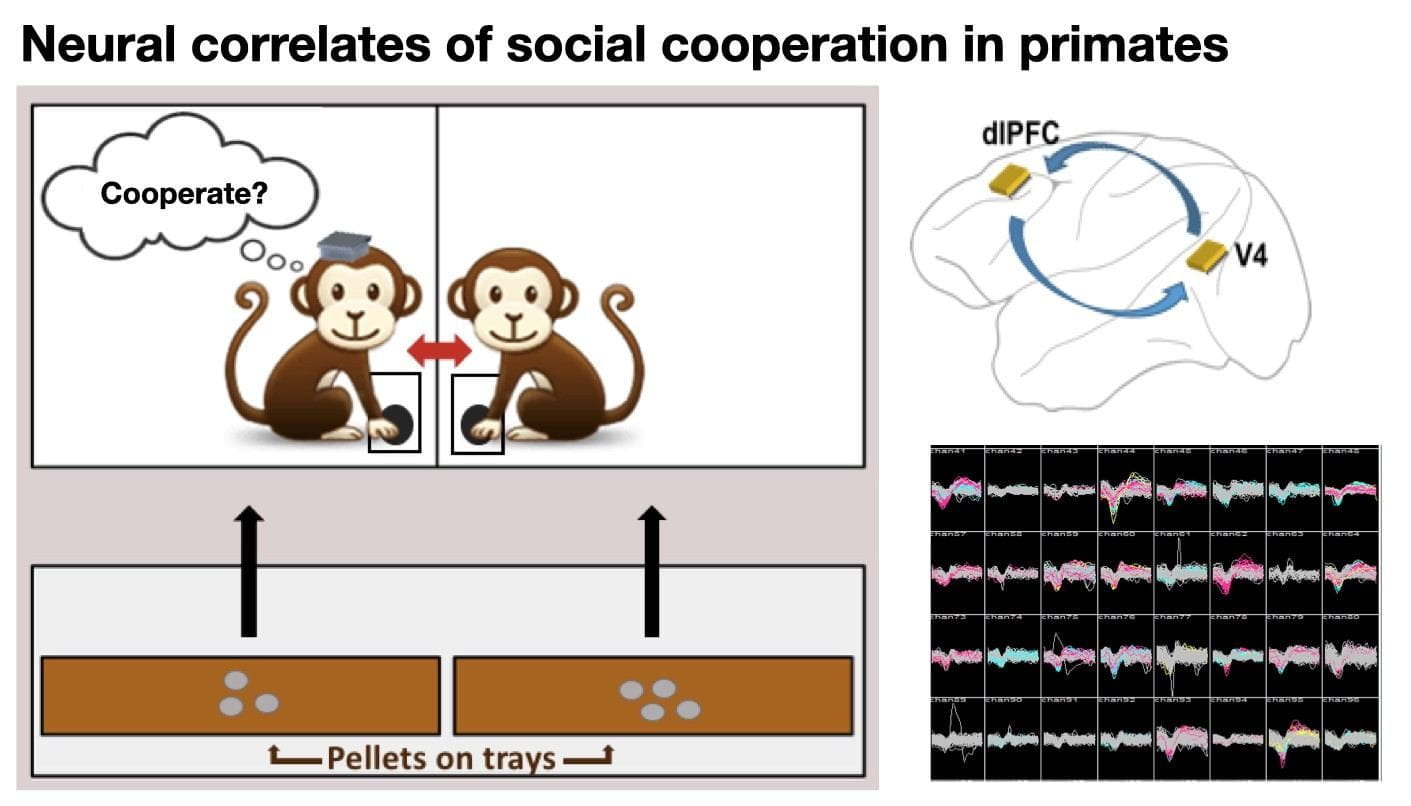Social interactions are believed to represent the primary force driving the evolution of intelligence in primates, and are critical to the health and survival of species. Indeed, social interactions are a ubiquitous aspect of our everyday life. Most of our knowledge in social cognition originates from studies performed (i) in restrained animals engaged in simple tasks, such as moving the eyes or touching a computer screen while recording the responses of very small groups of neurons, or (ii) by observing freely moving animals exhibiting social cognition without attempting to record brain signals. To address these limitations we will use a high-yield wireless recording system to capture the cortical dynamics and plasticity of social interactions by recording the population activity in multiple brain areas relevant for social cognition (visual cortical area V4, posterior inferior temporal cortex area PIT, ventrolateral prefrontal cortex, vlPFC, and dorsolateral prefrontal cortex dlPFC) while non-human primates are interacting freely with their environment and with other animals. Thus, our new approach will enable us to uncover the dynamics of neuronal network activity that drive social interactions in an ethologically relevant behavioral task that involves sensory integration and complex decision-making. This integrative project will bring together innovative brain recording technologies and microelectronics together with large data sets analysis techniques.
Collaborators: Valentin Dragoi
Current Student Researcher: Sudha Yellapantula
Funded By:


